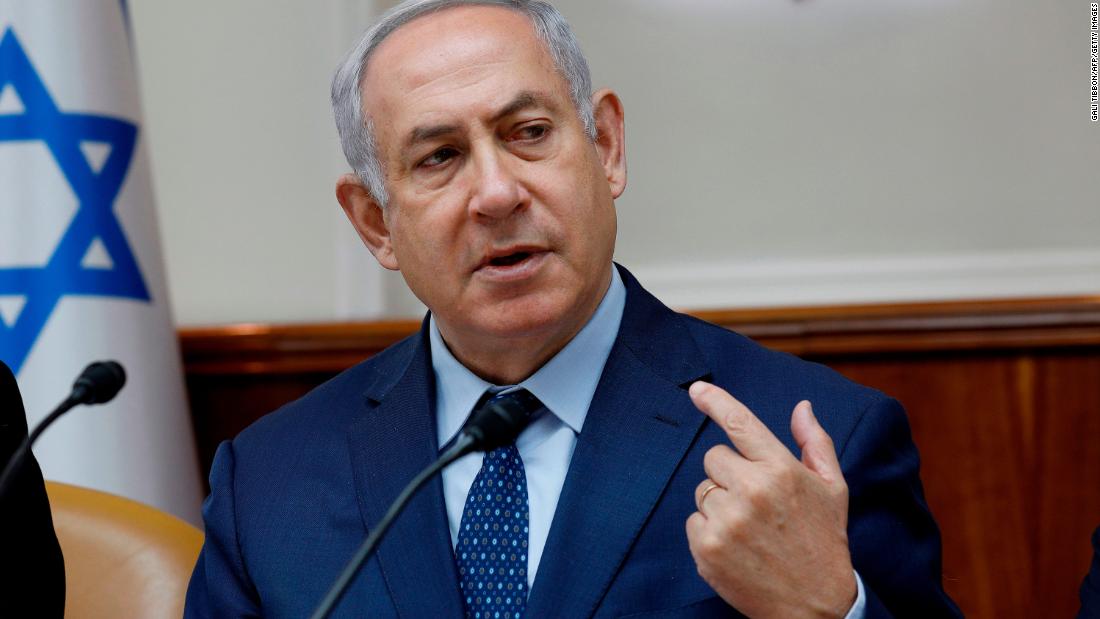[ad_1]
“Tonight, I’m here to tell you one thing: Iran lied — big time,” Netanyahu said late Monday during an address from the Israel Ministry of Defense in Tel Aviv.
Calling it one of the greatest achievements in the history of Israeli intelligence, Netayahu displayed what he said were files that demonstrate Iran planned to continue pursuing a nuclear weapons program despite the 2015 deal it brokered with the international community.
Speaking in English, Netanyahu accused Iran of ramping up efforts to obscure the files in 2015 and moving them to a secret location in Tehran last year.
The files were kept in massive vaults inside an “innocent-looking compound” in Shorabad District, the Prime Minister said. The 100,000 files contain, among other things, blueprints, charts, photos, videos and presentations dealing with nuclear weaponry.
“Iran planned at the highest level to continue work related to nuclear weapons under different guises and using the same personnel,” he said.
Iran for years operated the secret Project Amad, which sought to produce five nuclear warheads, each with an explosive yield equivalent to five of the bombs dropped on Hiroshima during World War II, Netanyahu alleged. The nation stored material related to Project Amad to use later, he said.
Iran lied about Project Amad, he said, when one of the conditions of the nuclear deal was that Iran had to “come clean” about its activities related to nuclear arms.
Before Netanyahu’s address, Iranian Foreign Minister Mohammad Javad Zarif tweeted, “The boy who can’t stop crying wolf is at it again. Undeterred by cartoon fiasco at UNGA. You can only fool some of the people so many times.”
Zarif was referring to a cartoon drawing of a bomb that Netanyahu referred to during a September 2012 appearance before the UN General Assembly about Iran’s nuclear program.
Netanyahu said during his address that Zarif — along with Ayatollah Ali Khamenei, Iran’s Supreme Leader, and President Hassan Rouhani — had all previously lied when they said Iran had no interest in nuclear weapons.
As part of the 2015 pact — agreed to by former US President Barack Obama, Russia, China, the United Kingdom, France and Germany — Iran agreed to reduce its uranium stockpile in return for international sanctions being lifted.
US President Donald Trump has until May 12 to decide whether to continue waiving sanctions on Iran that were lifted under the Iran deal, formally known as the Joint Comprehensive Plan of Action.
Netanyahu vehemently opposes the deal and said Monday it provides Iran “a clear path to an atomic arsenal” by allowing for unlimited uranium enrichment within a few years, and by failing to address the country’s development of ballistic missiles and its advanced work on weaponization.
Shortly after Netanyahu’s address, Trump applauded the Prime Minister’s announcement and said it shows he was “100% right” in criticizing the agreement.
“In seven years, that deal will have expired and Iran is free to go ahead and create nuclear weapons. That is not acceptable. Seven years is tomorrow,” he said.
Asked what might come of the deal, Trump responded, “We’ll see what happens.” Even if he does pull out of the deal, he said, “that doesn’t mean I wouldn’t negotiate a new agreement.”
CNN’s Tamara Qiblawi and Jeremy Diamond contributed to this report.
[ad_2]
Source link

